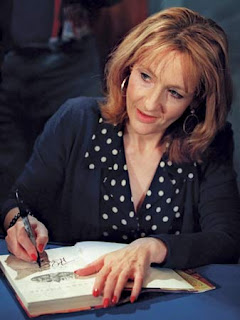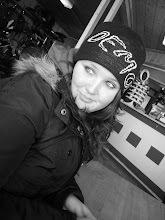
This term Harry Potter and the philosopher’s stone were on the curriculum. I had already read this book, but I quickly read through the book during the Christmas Holliday. I have to say that this book was not my favorite book in the Harry Potter’s world, but as I have read this book three times I have changed my mind. This is the start of an amazing series in Harry Potter’s life, and is absolutely vital to know to be able to understand and relate to how his life as a magician started.
Joanne Kathleen Rowling’s was born and raised in Britain. She created Harry Potter’s world and is now the twelfth richest women in Britain. Harry Potter and the philosopher’s stone were published in 1997 and it was the beginning of an amazing world. She has published seven book’s about Harry Potter but also three other book’s where there are some magic in it, but isn’t an sequel to it. This novel was made into a movie in 2001, and also won The British Book Awards Children's Book of the Year, and the Smarties Prize. Before she was published she worked as a teacher but after she had published Harry Potter and the philosopher stone she had enough money to an early retirement and to just continue on writing. She did that full time and published the sequel within a year. After this she has written books and/or done some commercial work due to the books. She is my favorite author and her use of language in her books is amazing.
Joanne Kathleen Rowling writes fiction, and fiction is now becoming more popular to readers al over the world. It has opened a new world to the readers, and for some people they are afraid of what this could bring to the world. There has been incidents where people has lived themselves fully into the books, and can’t divide what is real and what isn’t.
I love these stories but I still can divide what is real and what isn’t. I have to say that I am a bit sad that the Harry Potter books are finished, because I already miss them.








